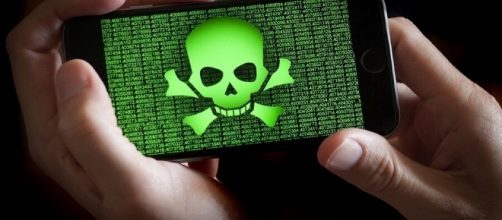Faced with an increasingly connected reality, we are forced to take certain measures to protect us from virtual thieves, the hackers. In the previous article we saw some of the many Internet pitfalls, but before knowing these scams better and learning how to defend them, you need to know more about these small programs that often go unnoticed in our eyes, but cause huge problems.
Viruses and malware
Do you know what viruses are? It's a program or piece of code downloaded to your computer without your permission, used to control vulnerable systems moving from a computer to the network creating copies of itself.
When running a contaminated program (a game or a file), the virus is activated, and if your internet is slow or disappears, your firewall and antivirus are inactive is a sign that your device is contaminated.
What we call a virus is a type of Malware: any malicious software that tries to infect a computer, cell phone or tablet to extract personal information, prevent the user from accessing your device, stealing money etc.There are still Spyware, Adware, Phishing, Trojan, Worms, Rootkits, Ransomware, Browser Hijackers and Sniffers.
Types of malicious software
Spyware is used to spy on and gain access to personal information (bank accounts, credit cards, and browsing history) that is hard to detect because it is coupled with regular software.
New or unknown icons on the taskbar, error messages that appear randomly when you perform operations that used to be normal are signs that it leaves on your device. One type of Spyware is the Keylogger; it records everything the user clicks on the keyboard monitoring all activity and then sends a log file to a specific server where the hackers can have any information that this spy picks up.
Do you know those endless and unpleasant pop-ups that bombard the screen every time page loads? They are not only uncomfortable but also dangerous, characteristic of a device contaminated by Adware, for the most part, are harmless but can be used to collect personal information, track websites you visit and record the keys you use.
If Adware causes more loss of patience than harm, we cannot say the same of Phishing that are e-mail or fake websites created by hackers to steal personal information, numbers and account passwords. In addition to dangerous are great at dupe and can be sent by legitimate organizations like Paypal, government agencies and your bank but are not true.
So if you receive an email asking for updates, validation/confirmation of account information saying that there was some problem you may suspect is a scam, the victim is redirected to a false and cheated site the put your personal information there giving to bandit everything that need for steal.
A Trojan looks useful and fun, but its intent is to cause problems and steal data, enters the system through email attachments with extensions (.exe .vbs .bat) and coupled with other files leaving the computer slow by excessive load on the processor.
Already the Worms are programs that automatically reproduce and spread over the network consuming a lot of system memory and bandwidth making computers, servers, and the network no longer respond.
An Adware version for emails the Spam are unsolicited messages promoting services and products, their creators disguise themselves as another person, and although do not offer greater risks they can fill your inbox making it difficult to search for an important email for example. Not so innocent, Rootkit is a program that offers the hacker administrative access to a computer without the owner knowing, infects a device through advertisements and apparently safe applications and although they cannot spread by themselves become an open the door to other threats.
Used in last Friday's attacks, Ransomware blocks the computer requiring money for the restriction to be removed, however paying them in Bitcoin does not mean that cybercriminals will keep their word. The Browser Hijacker is not exactly dangerous and as the name already says everything it changes browser settings by redirecting the user to sites that does not intend to visit. Installed along with some add-ons (browser extensions, toolbar, help objects) modify the home page and although useful may freeze the screen with pop-ups and other unwanted content.
Finally, the Sniffers that are not exactly malicious, used to monitor and analyze network traffic to detect problems and maintain efficient flow can be very useful to a hacker by capturing passwords and the names of unencrypted users that pass through them.
Placed in places with insecure Wi-Fi network as airports and hotels do not need to be installed on the computer or cell to steal your data.
There are countless ways to come across these clever and not always malicious software so the importance of knowing them better. In the next article learn the scams and attacks hackers use on the Internet to reach people and how these cybercriminals waiting for your victims in the digital world.


